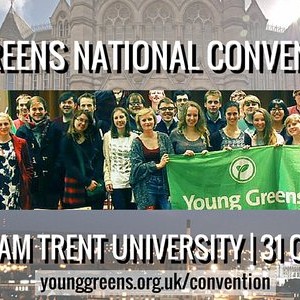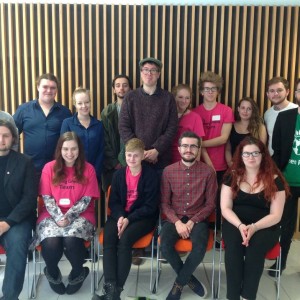For a new Scottish Enlightenment we must end Mummy, Daddy culture
By Gary Paterson
Top Universities Need to Open Up to Access. St. Andrews University have recently hit out at data released by NUS Scotland which showed the university had the worst rate of access in Scotland to students from socially deprived backgrounds; in 2011 a mere 13 students, or 2.7% of the student population, of its intake were students from socially deprived background. St. Andrews University have argued that the figures are unfair towards the university, which believes that long-term poverty, and a lack of educational and social support, not its admissions policy, are to blame for students not meeting their entry requirements of three Highers at A level.
In the run up to the 2011 Scottish Parliamentary elections Alex Salmond heralded the new oncoming ‘Scottish Enlightenment’ stating that, “this nation pioneered free education for all, which resulted in Scots inventing and explaining much of the modern world. We called this the Scottish Enlightenment… and out of educational access came social mobility… we can do it again”. To me this suggested that education would now be able to truly act as a transmitter of social equality, mobility and education on mass and by acting as an upward vehicle for swathes of potential students from a lower scale socio-economic background.
Unfortunately the recent figures by NUS Scotland show that the candle of hope is dwindling as some universities put their fingers to their ears and refuse to accept any responsibility or change to enable the betterment of educational opportunities and attainment for those from the bottom of the scale, as envisioned with proper educational provision without barriers. Despite the massive amounts of public money thrown at the issue barriers are still in place; some universities with tough admissions policies are generally impractical and unworkable for many of the people that it was hoped socially provided education would benefit.
It is not absolutely impossible to meet St. Andrews entry requirements of Higher A across the board, all students should absolutely aspire to do so, however we need to recognise that it’s probably a lot harder to reach that level of maximum attainment when one faces many other responsibilities in life, as those from lower socio-economic backgrounds more than often tend to in the absence of strong financial and social backing; Individuals who are parents, carers or must work around their studies simply cannot throw their all into their studies as others who do not have that added pressure.
We now face a crossroads in Scottish education, we have made massive strides towards educational equality by removing the upfront financial barriers to education, however we are not yet finished. Our top universities such as St. Andrews are unwilling to be flexible in their opening up to students from lower socio-economic backgrounds despite being publicly funded institutions. These universities operate around, and only cement, the elitist ‘Mummy, Daddy culture’ that structurally favours university students from certain socio-economic backgrounds. The liberation of university education for all will not be complete until it reaches across the sector, maintaining the elitist system which divides students into universities suited to their social background with never equalise Scottish education and will merely maintain the ‘passport to progress’ which determines your success depending on the prestige of your institutional stamp.
Socially provided education should be that transmitter we hope for; supporting the transition to a fair, open and just society while playing its role in tackling our chronic poverty and stagnant bottom up mobility. St. Andrews University recognises these problems but does not seem to see its role within them, however our universities are public institutions and as such should provide a public good, it is therefore vital that we ensure we are getting a ‘bang for our buck’ by working with the university sector to support students with potential to break through the institutional barriers. Simply, this has to come in the form of a widening access quota. Furthermore, universities need to get more creative, St. Andrews places the argument firmly on schools however it does not take into account for other routes; universities need to pick up students at Further Education colleges by maintaining dialog and articulation routes into courses.
It is only fair, and right, that these universities who benefit massively from public money should do their part to improve the state of the nation. If we are ever to see a new ‘Scottish Enlightenment’, we need the government to mandate a standardised minimum quota of student intake from social deprived backgrounds across the university sector as a whole and tasking it with the job of reaching into our communities and offering a helping hand towards attainment, education and wider social mobility. We must see a return for our money or it is pointless having socially provided education; free education needs to work in tandem with a policy of widening access to university so as to support social mobility, social expansion and social education on mass.
Gary Paterson is an Angus College Social Sciences Student, Student Association Officer and NUS Scotland’s Student of the Year – you can read his blog or follow him on twitter: @gpaterson8




St Andrews also claims — or at least, claimed a few years ago, when I last sat in student union committees challenging them on these issues — that poorer students simply apply in lower numbers, because of St Andrews’ “reputation” (for being full of yahs, though they used different words), which was of course “beyond [its] control”. How truthful that statement is or was is questionable in itself — St Andrews also actively recruits in posh private schools abroad, which significantly raises the percentage of its overseas students who come from high-income families — but it’s more symptomatic of their total refusal to actually engage with access issues.
At the same time as these frustrating meetings were happening, the university was in the midst of pushing forward plans to tear down nearly half of its already-insufficient low-rent student housing, with plans to replace it with hotel-style luxury student housing, which it would be able to rent out at higher rates to tourists outside of term time. (This despite extensive opposition to the plans from students and other residents.) The town was in the midst of an acute housing crisis — which I understand has only gotten worse in the three years since I left — with rents rivalling and often exceeding those in Edinburgh or even London. The university is by far the largest landowner in the town, to the extent that it has it in its power to basically determine standard rental rates. When low-income prospective students look at the town and see that their student loans will not even cover their rent, how many do you think are going to choose to take a place at St Andrews? … But (unless they’ve changed their story quite recently) the university has repeatedly denied any responsibility on the matter of housing.
(A quick note on your figures in the first paragraph, though: surely you mean the 13 students were 2.7% of the incoming first-years, rather than the whole student population? St Andrews is small, but it’s not THAT small!)